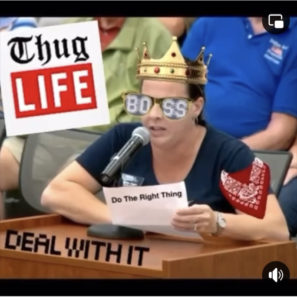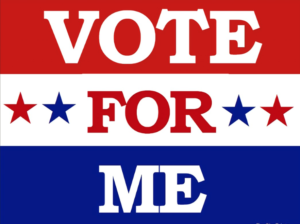

Gender Theory
Definition
Radical gender theory is a catch-all term for academic queer theory, transgender ideology, and gender identity activism. The premise of this ideology is that sex and gender are socially constructed—that is, they are human inventions used as instruments of power, rather than features of objective reality. Radical gender theorists argue that white, European men invented the “gender binary,” or division between man and woman, in order to oppress racial and sexual minorities. They believe that this system of “heteronormativity” must be exposed, critiqued, and deconstructed in order to usher in a world beyond the norms of heterosexual, middle-class society. In order to facilitate the destruction of this system, radical gender activists promote synthetic sexual identities, such as “pansexual,” “genderqueer,” and “two-spirit,” and neo-pronouns, such as “ze,” “zim,” and “zir.” The goal is to replace notions of biological sex, the male-female binary, and the nuclear family with “queer alternatives” and “a world beyond binaries.” Some strains of academic queer theory also support eliminating prohibitions on child pornography, valorizing transgressive sex, and permitting adult-child sexual relationships.
Key Concepts
Sex, gender, and sexuality are socially constructed: Radical gender theorists argue that biological sex, the male-female “gender binary,” and heterosexuality are socially constructed—that is, they are human inventions, rather than features of objective reality.
- “The institution of a compulsory and naturalized heterosexuality requires and regulates gender as a binary relation in which the masculine term is differentiated from a feminine term, and this differentiation is accomplished through the practices of heterosexual desire.” -Judith Butler, “Gender Trouble”
- “In the end, binaries are not just a curious way we have of understanding the world. They are political. They are about power. They create hierarchies—male/female, white/black, colonial/native—that produce winners and losers.” Riki Wilchins, Queer Theory, Gender Theory: An Instant Primer
Heteronormativity: Radical gender theorists argue that white European men have created a system of “compulsory heterosexuality,” monogamous marriage, and middle-class family norms that are, in actuality, instruments of power, domination, and oppression.
- “Modern Western societies appraise sex acts according to a hierarchical system of sexual value. Marital, reproductive heterosexuals are alone at the top erotic pyramid. Clamouring below are unmarried monogamous heterosexuals in couples, followed by most other heterosexuals. Solitary sex floats ambiguously. The powerful nineteenth-century stigma on masturbation lingers in less potent, modified forms, such as the idea that masturbation is an inferior substitute for partnered encounters. Stable, long-term lesbian and gay male couples are verging on respectability, but bar dykes and promiscuous gay men are hovering just above the groups at the very bottom of the pyramid. The most despised sexual castes currently include transsexuals, transvestites, fetishists, sadomasochists, sex workers such as prostitutes and porn models, and the lowliest of all, those whose eroticism transgresses generational boundaries.” Gayle Rubin, “Thinking Sex”
- “I argue that compulsory ‘white’ heterosexuality, the highly regulated and ritualized practice of channelling European women’s sexuality toward monogamous unions with men of the same race, is one of the primary ways they are compelled to perform ‘white’ feminine sexuality. Consistent with gender, ethnic and race expectations, and at times across class divisions, European women are expected to demonstrate their loyalty to whiteness and patriarchy.” Katerina Deliovsky, “Compulsory ‘White’ Heterosexuality: The Politics of Racial and Sexual Loyalty”
Support for synthetic sexual identities and neo-pronouns: In order to transcend the system of “heteronormativity,” radical gender theorists support the adoption of non-binary gender identities, boutique sexualities, and neo-pronouns, such as “gender fluid,” “genderqueer,” “pansexual,” “transgender,” “aromantic,” “polysexual,” and “ze,” “zim,” “zir.”
- “Some societies—like ours—tend to recognize just two genders, male and female. The idea that there are only two genders is sometimes called a ‘gender binary,’ because binary means ‘having two parts’ (male and female). Therefore, ‘non-binary’ is one term people use to describe genders that don’t fall into one of these two categories, male or female … People whose gender is not male or female use many different terms to describe themselves, with non-binary being one of the most common. Other terms include genderqueer, agender, bigender, and more.” National Center for Transgender Equality, “Understanding Non-Binary People: How to Be Respectful and Supportive”
- “Neopronouns are a category of new (neo) pronouns that are increasingly used in place of ‘she,’ ‘he,’ or ‘they’ when referring to a person. Some examples include: xe/xem/xyr, ze/hir/hirs, and ey/em/eir. Neopronouns can be used by anyone, though most often they are used by transgender, non-binary, and/or gender nonconforming people.” UNC Greensboro, “Neopronouns Explained”
Support for fetishism, sadomasochism, transvestitism, and transgressive sex: Radical gender theorists believe that transgressive sex is a way to liberate oneself from the system of “heteronormativity.”
- “[Gayle] Rubin is most interested in pro-sex feminism because of its commitment to erotic diversity and its valorization of those transgressive practices and identities that are on the ‘outer limits’ of institutional and ideological systems that stratify sexuality. As her essay makes clear, she is interested in these principles precisely because her project locates pro-sex feminism within the larger framework of a radical sexual politics of erotic dissidence. As a result, sexually dissident lesbians, such as S/M dykes, become for Rubin privileged bearers of the pro-sex ethos. Although she never explicitly claims that such transgressive sexualities will liberate us, she subtly promotes the idea that marginalized practices can form the basis for a genuinely radical, vanguard politics because they disrupt naturalized norms (in this case, ‘movement standards of purity’).” -Elisa Glick, “Sex Positive: Feminism, Queer Theory, and the Politics of Transgression”
- “[‘Genderfuck’ drag performance] foregrounds tropes of primitivism and degeneracy as tools of protest and liberation … Regarding BDSM, gender performance resonates strongly with this arguably queerer form, hoisting aloft profoundly illicit experiences such as pedophilia, necrophilia, erotic object fetishism, and human-animal sex as proof of the failure of hegemony to incorporate and discipline all social subjects.” Sarah Hankin, “‘I’m a Cross between a Clown, a Stripper, and a Streetwalker’: Drag Tipping, Sex Work, and a Queer Sociosexual Economy”
Drag shows for children: Radical gender theorists believe that drag performances for children, such as Drag Queen Story Hour, can be used to create a “site of queer pleasure” for children and to overcome the false notion of “childhood innocence.”
- “Drag is firmly rooted in play as a site of queer pleasure, resistance, and self-fashioning … Queer worldmaking, including political organizing, has long been a project driven by desire. It is, in part, enacted through art forms like fashion, theatre, and drag. We believe that [Drag Queen Story Hour] offers an invitation towards deeper public engagement with queer cultural production, particularly for young children and their families. It may be that DQSH is ‘family friendly,’ in the sense that it is accessible and inviting to families with children, but it is less a sanitizing force than it is a preparatory introduction to alternate modes of kinship. Here, DQSH is ‘family friendly’ in the sense of ‘family’ as an old-school queer code to identify and connect with other queers on the street.” Harper Keenan and Lil Miss Hot Mess,“Drag Pedagogy: The Playful Practice of Queer Imagination in Early Childhood”
- “In my attempt to address homophobia’s impact on childhood development, I have hoped to queer the damaging rhetoric of childhood innocence by suggesting that we, as adults, clear a path for children to symbolize negativity, queer affect, and sexual curiosity. Because, for queer theory, gender and sexuality are porous and mobile, a queer theory of childhood education should not be invested in predicting the child’s future identity, but rather attend to the child’s present curiosity about sexual difference.” -Hannah Dyer, “Queer Futurity and Childhood Innocence: Beyond the Injury of Development”
Opposition to restrictions on child pornography: Radical gender theorists have said that anti-child pornography laws are the result of “erotic hysteria” and a “child porn panic.”
- “For over a century, no tactic for stirring up erotic hysteria has been as reliable as the appeal to protect children … The laws produced by the child porn panic are ill-conceived and misdirected. They represent farreaching alterations in the regulation of sexual behaviour and abrogate important sexual civil liberties. But hardly anyone noticed as they swept through Congress and state legislatures. With the exception of the North American Man/Boy Love Association and American Civil Liberties Union, no one raised a peep of protest.” Gayle Rubin, Thinking Sex
- “It’s certainly true that some of the young people who appeared in [child pornography] were coerced into modeling and were damaged by that experience. But it would be a mistake to characterize all child porn as ‘a record of child abuse.’ Sometimes it was a record of children’s exhibitionism and free erotic play with one another. Sometimes it was a record of adolescent vanity, pride, and budding sexuality. Sometimes it preserved a moment of exceptional trust and pleasure between partners whose ages would normally have kept them apart.” Pat Califia, The Culture of Radical Sex
Opposition to restrictions on adult-child sexual relationships: Radical gender theorists have called for eliminating restrictions on so-called “trans-generational relationships”—that is, sexual relationships between adults and children.
- “Like communists and homosexuals in the 1950s, boylovers are so stigmatized that it is difficult to find defenders for their civil liberties, let alone for their erotic orientation …The law is especially ferocious in maintaining the boundary between childhood ‘innocence’ and ‘adult’ sexuality. Rather than recognizing the sexuality of the young, and attempting to provide for it in a caring and responsible manner, our culture denies and punishes erotic interest and activity by anyone under the local age of consent.” Gayle Rubin, Thinking Sex
- “American society has become rabidly phobic about any sexual contact between adults and minors … To simply speak this truth is very dangerous today. But we do not serve ourselves—or children—very well when we interpret all sexual experiences in the most negative terms possible. Sex is not simply a matter of violence or danger. And issues of consent, autonomy, and power are never simple to sort out, especially in the realm of the senses. Adult panic or disgust about young people’s seeking pleasure for themselves is responsible for much of the trauma that minors experience when they are caught behaving ‘inappropriately’ for their ages, even in a consensual context.” Pat Califia, The Culture of Radical Sex
- “It could be that the child, with his own sexuality, may have desired that adult, he may even have consented, he may even have made the first moves. We may even agree that it was he who seduced the adult … In any case, an age barrier laid down by law does not have much sense.” Michel Foucault, discussing his opposition age of consent laws in Politics, Philosophy, Culture: Interviews and Other Writings, 1977 – 1984
- “I do think that there are probably forms of incest that are not necessarily traumatic or which gain their traumatic character by virtue of the consciousness of social shame that they produce … It might, then, be necessary to rethink the prohibition on incest as that which sometimes protects against a violation, and sometimes becomes the very instrument of a violation” Judith Butler, Undoing Gender
Radical Gender Theory in Schools
Radical gender theory is now being taught in public school districts, publicly-funded nonprofits, and gender activist organizations throughout the United States. The strongest line of attack against this ideology is to cite specific stories about radical gender theory in practice. When you are designing your communications, weave in stories about the reality of radical gender theory in American institutions. Ground your argument in facts and force your opponents to defend the indefensible.
Here are some recent examples from my reporting:
- In Chicago, the city’s largest children’s hospital has partnered with local school districts to promote radical gender theory. Link.
- Sacramento City Unified School District instructs teachers to “normalize gender exploration” and promotes such identities as “genderqueer,” “polysexual,” and “two-spirit.” Link.
- Left-wing activists have smuggled radical gender theory into more than 4,000 schools. Link.
- Los Angeles Unified School District adopts radical “trans-affirming” programming and instructs teachers to work toward “the breakdown of the gender binary.” Link.
- Portland’s public schools teach K-5 students to subvert the sexuality of “white colonizers” and begin exploring “the infinite gender spectrum.” Link.
- Evanston–Skokie’s school district adopts a curriculum that teaches pre-K through third-grade students to “break the binary” of gender. Link.
- San Diego public schools want to overthrow “heteronormativity” and promote “genderqueer,” “non-binary,” “pansexual,” and “two-spirit” identities. Link.
- The School District of Philadelphia encouraged teachers to attend a conference on “kink,” “BDSM,” “trans sex,” and “masturbation sleeves.” Link.
- A consortium of publicly subsidized nonprofits wants to “decolonize gender” and normalize male genitalia as a form of authentic womanhood. Link.
- A Kentucky summer camp teaches “sex liberation,” “BDSM,” and “self-pleasure” to minors. Link.
Winning the Language War
Radical gender theory uses a series of sophisticated linguistic tools to manipulate the discourse and influence children in public schools. To successfully fight against it, we must adopt language that is trenchant, persuasive, and resonates with the public.
Here are some powerful words and phrases to include in your communications:
- “Radical gender theory”
- “Gender ideology”
- “Sexual ideology”
- “Academic queer theory”
- “Synthetic sexual identities”
- “Sexual engineering”
- “Left-wing sexual politics”
- “Sexualizing children”
- “Destroying childhood innocence”
- “They want to inject radical gender theory into K-12 schools and keep it a secret from parents”
- “Children aren’t ‘pansexual,’ ‘genderqueer,’ or ‘two-spirit’—and schools should never be pushing sexual identities onto innocent kids”
- “Radical gender theory wants to eliminate the words ‘man,’ ‘woman,’ ‘mom,’ and ‘dad’”
- “Radical gender theory wants to replace parents with a state-backed sexual ideology”
- “Schools should not be in the business of promoting puberty blockers, double-mastectomies, and irreversible medical experiments on children”
- “Teachers should not be sharing their sexuality with children”
- “Drag Queen Story Hour is another way of saying ‘adult male transvestites who want to share their sexuality with kids’”
How to Get Organized
Parents are mobilizing against radical gender theory in school districts across the country. Here is how to get started:
- Show up in your community. Attend your local school board meetings. Ask questions, provide comments, and connect with people. Invite your friends, family, and neighbors to join you at the meetings. Use this as an opportunity to connect with parents who share your values.
- Get to know your school board. Connect with school board members personally. It is much easier to persuade someone with whom you have a relationship. Find out how long they’ve served on the school board. Ask why they ran in the first place? You can tailor your arguments to their needs, motivations, and concerns.
- Identify a specific goal. Channel the energy from fellow parents toward a specific goal. What exactly do you want? Think of this as your mission statement. It should be short, specific, and easy to understand. For example, you might want to force the resignation of an uncooperative superintendent, persuade the school board to ban radical gender theory, or lobby for a curriculum transparency resolution.
- Build a leadership team. It takes a team of dedicated parents to achieve your goals. Identify your most committed allies, and assign them roles. If your teammates have personal or professional experience in organizing, project management, or team-building, they will be great assets to your cause.
- Join the grassroots network of parent groups. Parents Defending Education, Moms for Liberty, Center for Renewing America, No Left Turn in Education, and Save Our Schools are national organizations that provide resources and coordination for local parent groups. Contact them to see if there are chapters in your area; if not, start one. There is strength in numbers, and these organizations can help guide your local group.
- Gather evidence, and build your case. First, talk to your kids about what they’re learning in school. Second, submit a public records request to get curricular, budget, and training materials from your local school or district. Judicial Watch put together a useful presentation explaining the process here, here, and here.
- Make the issue as public as possible. Send an email to all the administrators and parents in your school. Attach evidence of radical gender theory practices. Start a brushfire of angry parents. That will make it easier to identify your friends and force the administration to respond to the controversy.
- Choose a capable spokesperson. Choose someone who is sympathetic, professional, and comfortable speaking in public. Use evidence to support your arguments, share personal stories about how divisive ideologies have impacted their families, and communicate with respectful passion.
- Make strong arguments. Have evidence to support every claim you make. Do not give them an easy win by making an accusation you cannot defend. If there are books, lesson plans, or internal documents promoting radical gender theory concepts, pull the most objectionable quotes, read them aloud, and ask the school board members if they agree.
- Understand your opponents, and never lose your cool. There will be left-wing school board members, administrators, and teachers who support radical gender theory. They prefer to operate in the dark, without public knowledge or transparency, because they “know best” and don’t want parents to interfere. When you expose them, they might respond with ugly, personal attacks. You must remain calm, focused, and respectful—always keep the moral high ground, ignore the attacks as much as possible, and focus on executing your goal. Do not respond to their insults and slurs; stay on the offense and force them to defend their ideas.
- Run for the school board. If your school board members will not listen to parents, consider running for the school board yourself or recruiting another parent to engage in the process.
More Articles


Don’t Ever Forget What
They Did To Our Children!

Books Requested To Be Removed From
Manatee School Libraries
Manatee School Libraries

Porn Books Removed By the Indian River School District

Manatee County
Administrator Candidates
